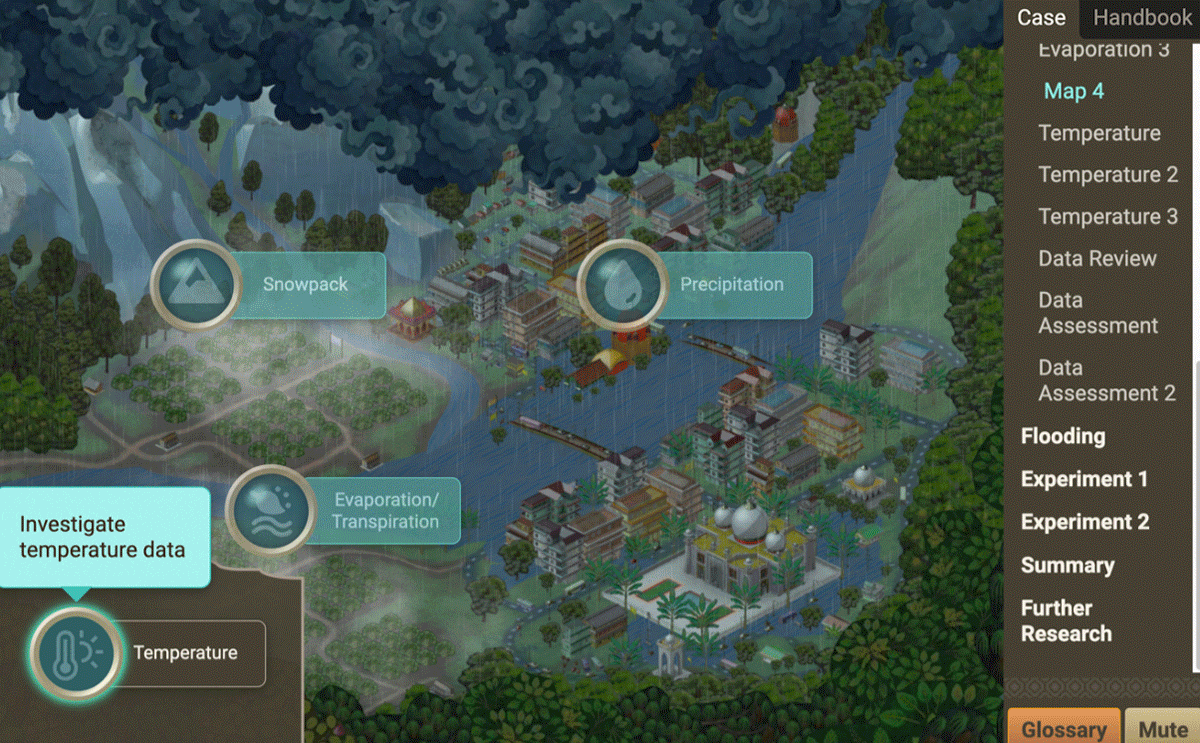Stop the Floods With our Latest Interactive STEM Case
- February 06, 2023
- In the News
- Gizmos

Paanee, a city in Northeast India, has been experiencing higher rates of flooding than normal. This surge in flooding has been caused by an increase in the hydrologic cycle’s activity. In the new Hydrologic Cycle STEM Case, students take on the role of a hydrologist to investigate why the hydrologic cycle’s rate has increased and what can be done to manage and reduce flooding.
The hydrologic cycle is an extremely important process because it enables the availability of water for all living organisms and regulates weather patterns on our planet. If water didn’t naturally recycle itself, we would run out of clean water, which is essential to life. As human activities drive climate change, warmer temperatures cause extreme precipitation events to increasingly occur. Extreme flooding can displace wildlife, destroy habitats, and cause a loss of human life, amongst other things. By understanding these impacts, we can work towards managing the effects of climate change while reducing the factors that are causing it.

What are Gizmos STEM Cases?
In Gizmos STEM Cases, students step into the shoes of real-world STEM professionals. STEM Cases are designed to help students learn core STEM concepts and practice critical thinking skills (data analysis, data interpretation, hypothesis and reasoning, predictions, and communicating findings). Students are assessed on each of these, and their progress can be monitored in real-time by teachers. The following concepts are addressed in the Hydrologic Cycle STEM Case:
- Hydrologic Cycle
- Temperature and the Physical States of Water
- Climate Change
As in all our STEM Cases, 15-25 assessments per activity report student achievement in real-time, giving teachers the ability to quickly address problems and differentiate instruction.
Hydrologic Cycle, which is geared toward high-school and AP high-school students, joins our growing library of STEM Cases, which currently include Animal Group Behavior, Heredity and Traits, Ocean Carbon Equilibrium, Fruit Production and the Environment, Chemical and Physical Changes, and more.
Sign up to get the latest updates from ExploreLearning via occasional email.